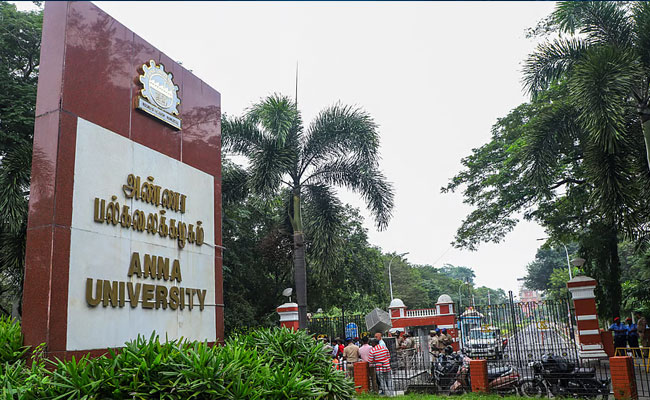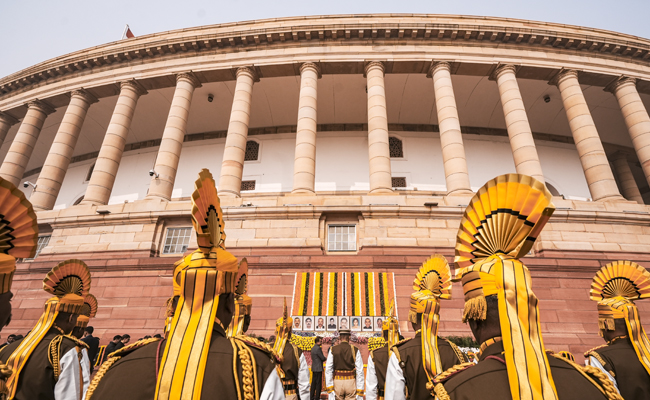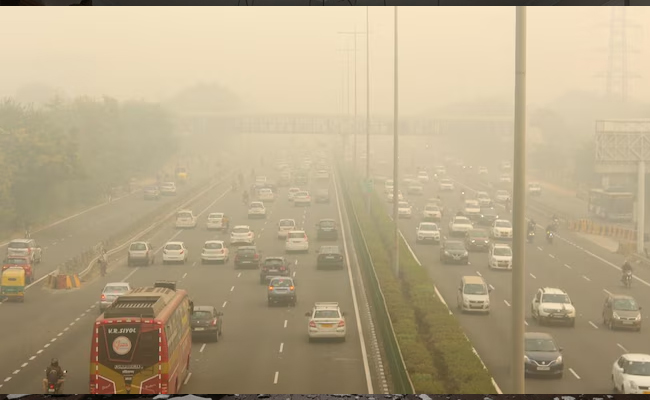Chennai (PTI): A Mahila Court here on Monday awarded life sentence for a minimum period of 30 years without remission to the accused Gnanasekaran, who has been convicted for sexually harassing a student on the Anna University campus in December last year.
Mahila Court judge M Rajalakshmi, who convicted Gnanasekaran on May 28, awarded sentences in respect of each 11 charges proved by the prosecution against him.The sentences run concurrently, the judge added.
While convicting the accused, the court held that the prosecution proved the the sexual assault case that rocked Tamil Nadu in December 2024, beyond reasonable doubt.
The government counsel then told reporters that the prosecution filed 11 charges against Gnanasekaran and proved all of them using documentary and forensic evidence.
The judge, while convicting Gnanasekaran, said that he sought a lenient sentence claiming he was the sole bread-winner of the family and prosecution objected to it and sought maximum punishment.
The sensational case had triggered a political row over Gnanasekaran's alleged connections with the ruling DMK in the state, although the party president and Chief Minister M K Stalin had in January said he was only a sympathiser and supporter, and not a member of the Dravidian party.
The case came to light after the victim lodged a complaint before the All Women Police Station in Kotturpuram here on December 23 last year. In her complaint, the victim alleged that Gnanasekaran threatened her when she was with a male friend and then sexually harassed her.
Gnanasekaran was later arrested.
The FIR of the case was downloaded from the CCTNS website of Tamil Nadu police and broadcast by certain sections of the media which created a furore.
Later, the Madras High Court transferred the investigation of the case to a Special Investigation Team, which also probed the FIR leak.
The SIT filed a charge sheet in February before a magistrate court. Thereafter, the case was transferred to the Mahila Court.
The Mahila court framed charges against Gnanasekaran under sections various sections of the BNS, including sexual harassment, BNSS, IT Act and the Tamil Nadu Prevention of Women Harassment Act.
Let the Truth be known. If you read VB and like VB, please be a VB Supporter and Help us deliver the Truth to one and all.
New Delh (PTI) The Congress on Saturday said it is perhaps not very surprising that India is not part of a US-led strategic initiative to build a secure silicon supply chain, given the "sharp downturn" in the Trump-Modi ties, and asserted that it would have been to "our advantage if we had been part of this group".
Congress general secretary in charge of communications Jairam Ramesh took a swipe at Prime Minister Narendra Modi, saying the news of India not being part of the group comes after the PM had enthusiastically posted on social media about a telephone call with his "once-upon-a-time good friend and a recipient of many hugs in Ahmedabad, Houston, and Washington DC".
In a lengthy post on X, Ramesh said, "According to some news reports, the US has excluded India from a nine-nation initiative it has launched to reduce Chinese control on high-tech supply chains. The agreement is called Pax Silica, clearly as a counter to Pax Sinica. The nations included (for the moment at least) are the US, Japan, the Republic of Korea, Singapore, the Netherlands, the United Kingdom, Israel, the United Arab Emirates, and Australia."
"Given the sharp downturn in the Trump-Modi ties since May 10th, 2025, it is perhaps not very surprising that India has not been included. Undoubtedly, it would have been to our advantage if we had been part of this group."
"This news comes a day after the PM had enthusiastically posted on his telephone call with his once-upon-a-time good friend and a recipient of many hugs in Ahmedabad, Houston, and Washington DC," the Congress leader asserted.
The new US-led strategic initiative, rooted in deep cooperation with trusted allies, has been launched to build a secure and innovation-driven silicon supply chain.
According to the US State Department, the initiative called 'Pax Silica' aims to reduce coercive dependencies, protect the materials and capabilities foundational to artificial intelligence (AI), and ensure aligned nations can develop and deploy transformative technologies at scale.
The initiative includes Japan, South Korea, Singapore, the Netherlands, the United Kingdom, Israel, the United Arab Emirates, and Australia. With the exception of India, all other QUAD countries -- Japan, Australia and the US -- are part of the new initiative.
New Delhi will host the India-AI Impact Summit 2026 on February 19-20, focusing on the principles of 'People, Planet, and Progress'. The summit, announced by Prime Minister Narendra Modi at the France AI Action Summit, will be the first-ever global AI summit hosted in the Global South.
Prime Minister Modi and US President Trump on Thursday discussed ways to sustain momentum in the bilateral economic partnership in a phone conversation amid signs of the two sides inching closer to firming up a much-awaited trade deal.
The phone call between the two leaders came on a day Indian and American negotiators concluded two-day talks on the proposed bilateral trade agreement that is expected to provide relief to India from the Trump administration's whopping 50 per cent tariffs on Indian goods.
In a social media post, Modi had described the conversation as "warm and engaging".
"We reviewed the progress in our bilateral relations and discussed regional and international developments. India and the US will continue to work together for global peace, stability and prosperity," Modi had said without making any reference to trade ties.





